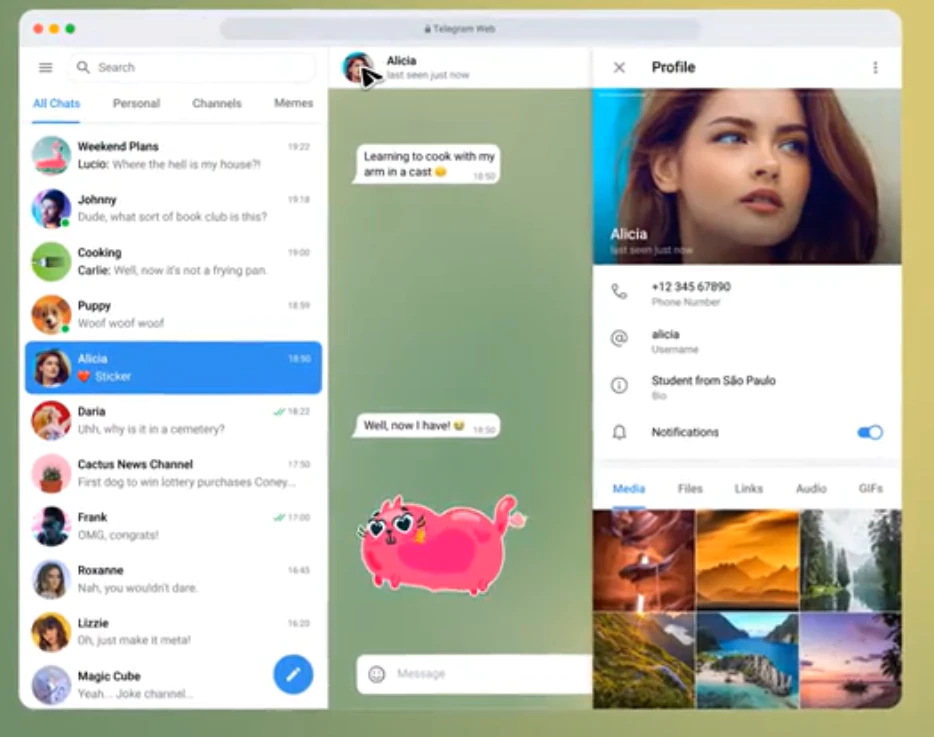On Thursday, April 29th, the Supreme Court ruled that an illegal immigrant who was facing deportation back to his native country will be allowed to remain in the United States due to the fact that the government did not adhere to specific verbiage of a law.
According to federal law, an illegal immigrant can avoid deportation at the attorney general’s discretion, if they have been in the United States for at least ten years.
In order to face deportation, an illegal immigrant must receive “a notice to appear” with information about their hearing. Notice the word “a”.
The Supreme Court has just sided with illegal immigrant, Agusto Niz-Chavez in a deportation case, stating that the government sent him multiple documents containing different pieces of information.
The court’s majority ruled that because the law says “a” notice, that means it must be a single document.
Unusual Supreme Court vote rules illegal immigrant can avoid deportation on technicality https://t.co/3iF9YnXv0d
— PMLN (USA) (@pmlnusa) April 29, 2021
Justice Neil Gorsuch wrote in the court’s opinion:
“At one level, today’s dispute may seem semantic, focused on a single word, a small one at that,”
He went on to say:
“But words are how the law constrains power. In this case, the law’s terms ensure that, when the federal government seeks a procedural advantage against an individual, it will at least supply him with a single and reasonably comprehensive statement of the nature of the proceedings against him.”
Gorsuch led an unusual collection of justices in the 6-3 decision. Those who sided with Gorsuch were liberal Justices Elena Kagan, Sonia Sotomayor and Stephen Breyer, as well as conservatives Amy Coney Barrett and Clarence Thomas.
Those in opposition of the decision were Justice Brett Kavanaugh, in addition to Chief Justice John Roberts and Justice Samuel Alito.
Fox News reported that Niz-Chavez came to the U.S. in 2005, and the Supreme Court began the removal process in 2013, after which he was ordered to leave the U.S. voluntarily or be deported. He had received two notices, one in March 2013 with his charges, and another in May 2013 with the time and place of the hearing.
In his dissent, Kavanaugh expressed his feelings on the fact that it literally comes down to a matter of a few pieces of paper, despite the fact that Niz-Chavez received all the necessary information by May of 2013, which was well within the ten year allotment.
By a 6-3 vote, the court sided with Agusto Niz-Chavez. The Guatemalan immigrant has been in the United States since 2005. https://t.co/USufSHEFBA
— KREX 5/Fox 4 (@KREX5_Fox4) April 29, 2021
Kavanaugh wrote:
“I find the Court’s conclusion rather perplexing as a matter of statutory interpretation and common sense,”
The government made the argument that it is difficult to send all of the information in one notice, due to various reasons, such as a possible change in hearing location.
Gorsuch made the counter argument, and the winning argument, saying:
“But as this Court has long made plain, pleas of administrative inconvenience and self-serving regulations never ‘justify departing from the statute’s clear text.’”
According to Fox News, Gorsuch also took a dig at government bureaucracy and the burdens it places on the general public without mercy. As an example, he described how asylum seekers have to fill out a 12-page form that comes with 14 pages of instructions, and that if they make a mistake their application could be deemed invalid and they could even risk being charged with a crime.
Gorsuch wrote:
“If the government finds filling out forms a chore, it has good company,”
He went on to say:
“The world is awash in forms, and rarely do agencies afford individuals the same latitude in completing them that the government seeks for itself today.”
Lawmakers approve professional licenses for illegal immigrants after lobbying from Chamber of Commerce
April 27, 2021
ATLANTA, GA – Georgia Lawmakers passed a series of bills last week that would allow illegal aliens in Georgia to apply for and obtain professional licenses. The bills now sit on the Governor’s desk for signature.
Georgia Lawmakers Pass Professional Licenses for Illegal Alienshttps://t.co/k3ssjS65pP
— Jack Posobiec (@JackPosobiec) April 26, 2021
The Center for Immigration Studies called that action by the Georgia legislature concerning:
“Georgia’s state legislature — unless Gov. Brian Kemp takes corrective action — has made it easier for illegal aliens to get professional licenses in several occupations.
“While the actual negative labor market impacts (in terms of numbers) are modest, the symbolism is huge.”
The series of bills would allow illegal aliens to obtain professional licenses from the Georgia Secretary of State’s Office to work as counselors, social workers, therapists, speech pathologists, audiologists, occupational therapists, and other jobs.
Georgia’s state legislature has made it easier for illegal aliens to get professional licenses in several occupations. While the actual negative labor market impacts (in terms of numbers) are modest, the symbolism is huge. https://t.co/n0YiYHpnV5
— Mark Krikorian (@MarkSKrikorian) April 21, 2021
In an article by The Center for Immigration Studies titled “Georgia Legislature Makes It Easier for Illegals to Get Professional Licenses,” David North writes:
“At the moment, three parallel bills (HB 34, HB 268, and HB 395) have been passed by an inattentive legislature and are on the governor’s desk for signature, veto, or becoming law without his signature.
“The governor, who supported the earlier statutes on keeping illegal aliens out of these professions, has not made his position clear on the current matter.”
.@GaBudget
Anti-enforcement, leftist lobbying position open in #Georgiafornia Guessing illegal aliens welcome. https://t.co/wAo4hgNca0— D.A. King #IllegalAliensAreNotImmigrants (@DAKDIS) April 19, 2021
Georgia activist D.A. King with the Dustin Inman Society posted two letters from the executives with the Georgia Chamber of Commerce that lobbied state lawmakers to pass the legislative package.
The first letter was written by Chamber of Commerce Chief Public Affairs Officer David Raynor, who wrote to the Georgia House members:
“The Georgia Chamber of Commerce respectfully requests your favorable consideration in supporting House Bill 34… House Bill 34 would increase public access to audiology and speech language pathology be recognizing other states’ licenses in allowing these practitioners to operate in the state. “
@BrianKempGA ran on being tough on illegal’s, said he would load them up & get them out and now you tell those that voted for him on that PROMISE they are now going to be given professional licenses to stay & work in Georgia? @RepMTG @RepDougCollins @RepVernonJones https://t.co/yqGqH5gb9J
— Grandy (@thewoman62) April 26, 2021
The second letter written by Raynor asked for support from the Georgia House for House Bill 268, which allow out of state professional licenses to be honored for occupational therapists as well.
Neither of the letters points out that the changes to the law would allow illegal aliens to obtain these professional licenses. The Center for Immigration Studies explained that current Georgia law was carefully constructed to avoid allowing illegal aliens from obtaining these licenses:
“Georgia currently has a carefully constructed technique for seeing to it that those illegally present in the U.S. do not get state professional licenses for a large range of regulated occupations, such as professional counselors, social workers, marriage and family therapists, occupational therapists, and speech-language pathologists and audiologists.
“In effect, the Georgia legislature has deferred to these highly specialized professional associations the right to regulate who can work in these professions in the State of Georgia. Unfortunately, legislative eyes glazed over as the not-very-stimulating question of who can practice speech-language pathology in the state was discussed.”
*Georgia Secretary of State
SOSGeorgia Secretary of State | https://t.co/XCkeDmajjd
The Georgia Secretary of State registers voters, tracks annual corporate filings, grants professional licenses, and oversees the state’s securities’ market.
https://t.co/3Ppfsax3vw— The American Dialogue (@AmericaDialogue) March 28, 2021
North explained that the Chamber of Commerce used “sneaky” maneuvering to pass the bill package:
“Through a sneaky, indirect legislative maneuver, that structure is in danger of being demolished by causing Georgia to enter inter-state compacts on licensing these professions; by signing on to these compacts, the state would lose its current power to deny licenses to illegal aliens.
“The bills were sold to the legislature, according to immigration activist D.A. King, by stressing some of their other features, such as making it easier for military spouses to practice their professions in Georgia.”
. @GaRepublicans just a heads up
Is intent on making sure all illegals have drivers licenses
Welcome to New be York city, where if you’re a citizen, especially Caucasian, you mean nothing. Shut up and pay.
The gop in Georgia is dead. Rip
— J.S. Mcnerney (@scottisathome) April 26, 2021
North said that if the bills become law in the state, people might start paying closure attention to the issue of illegal immigration:
“There is a bit of irony here. For decades, the middle and upper classes in this country have paid little attention to massive flows of illegal aliens into the labor market, on the grounds that all those unskilled workers will not impact their livelihood personally, hence our scanty enforcement of immigration laws.
“But now, at least in Georgia, a few illegals will be able to start competing with the professionals. Will the citizen professionals notice?”
—–
Want to make sure you never miss a story from Law Enforcement Today? With so much “stuff” happening in the world on social media, it’s easy for things to get lost.




